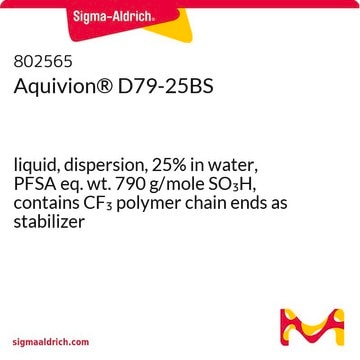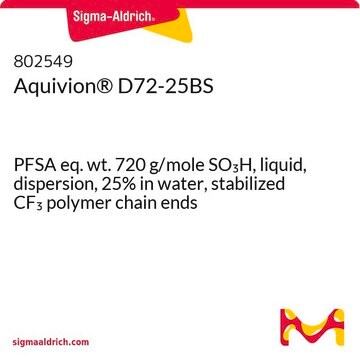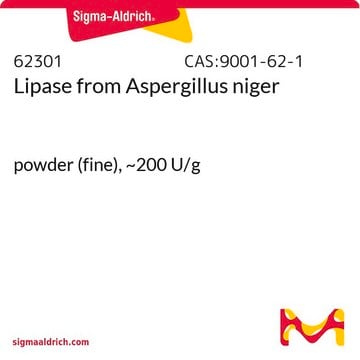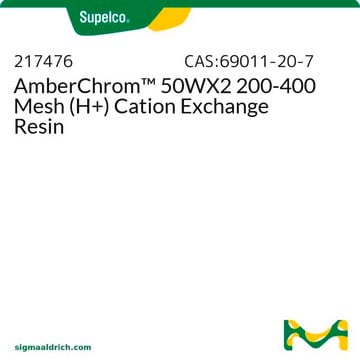802611
Aquivion® PW79S
coarse powder, PFSA eq. wt. 790 g/mole SO3H, contains CF3 polymer chain ends as stabilizer
Synonym(s):
Aquivion® SO3H, Tetrafluoroethylene-perfluoro(3-oxa-4-pentenesulfonic acid) copolymer, Ethanesulfonic acid
About This Item
Recommended Products
Looking for similar products? Visit Product Comparison Guide
General description
Application
- Aquivion® PW79S acid powder exhibits concentrated ion cation-exchange capacity and can be used under the conditions where conventional exchange resins have shown insufficient chemical resistance.
- Given the resin′s superacid functionality with many active groups it can also be used either directly or as an ingredient of composite structures active as heterogeneous catalysts. This encompasses a wide range of organic synthesis and respective reaction mechanisms, as already described in public literature.
Legal Information
Storage Class Code
11 - Combustible Solids
WGK
WGK 3
Flash Point(F)
Not applicable
Flash Point(C)
Not applicable
Certificates of Analysis (COA)
Search for Certificates of Analysis (COA) by entering the products Lot/Batch Number. Lot and Batch Numbers can be found on a product’s label following the words ‘Lot’ or ‘Batch’.
Already Own This Product?
Find documentation for the products that you have recently purchased in the Document Library.
Articles
Advances in electrochemical water conversion and understanding PEMFC degradation drive progress in hydrogen technologies.
Our team of scientists has experience in all areas of research including Life Science, Material Science, Chemical Synthesis, Chromatography, Analytical and many others.
Contact Technical Service






